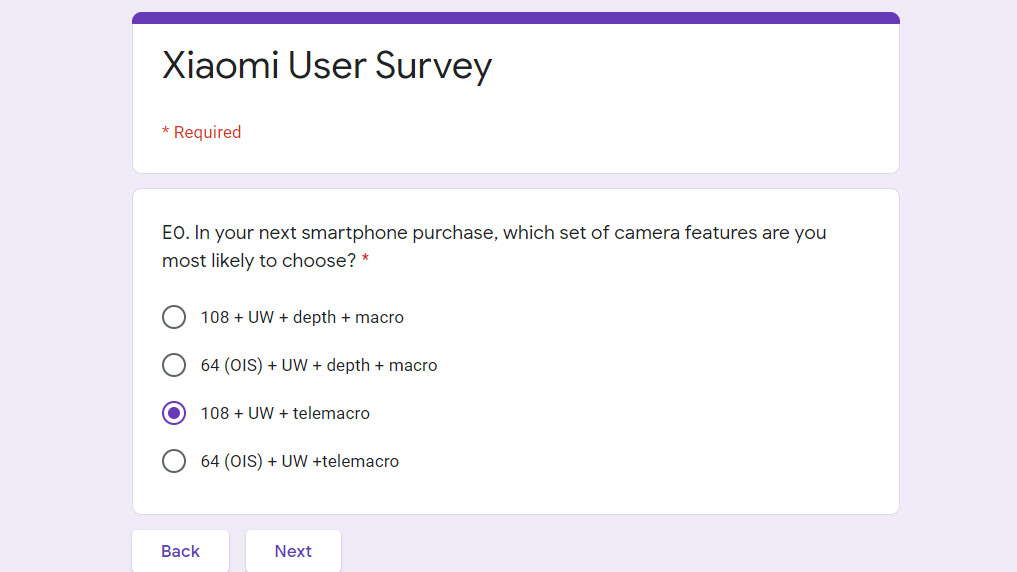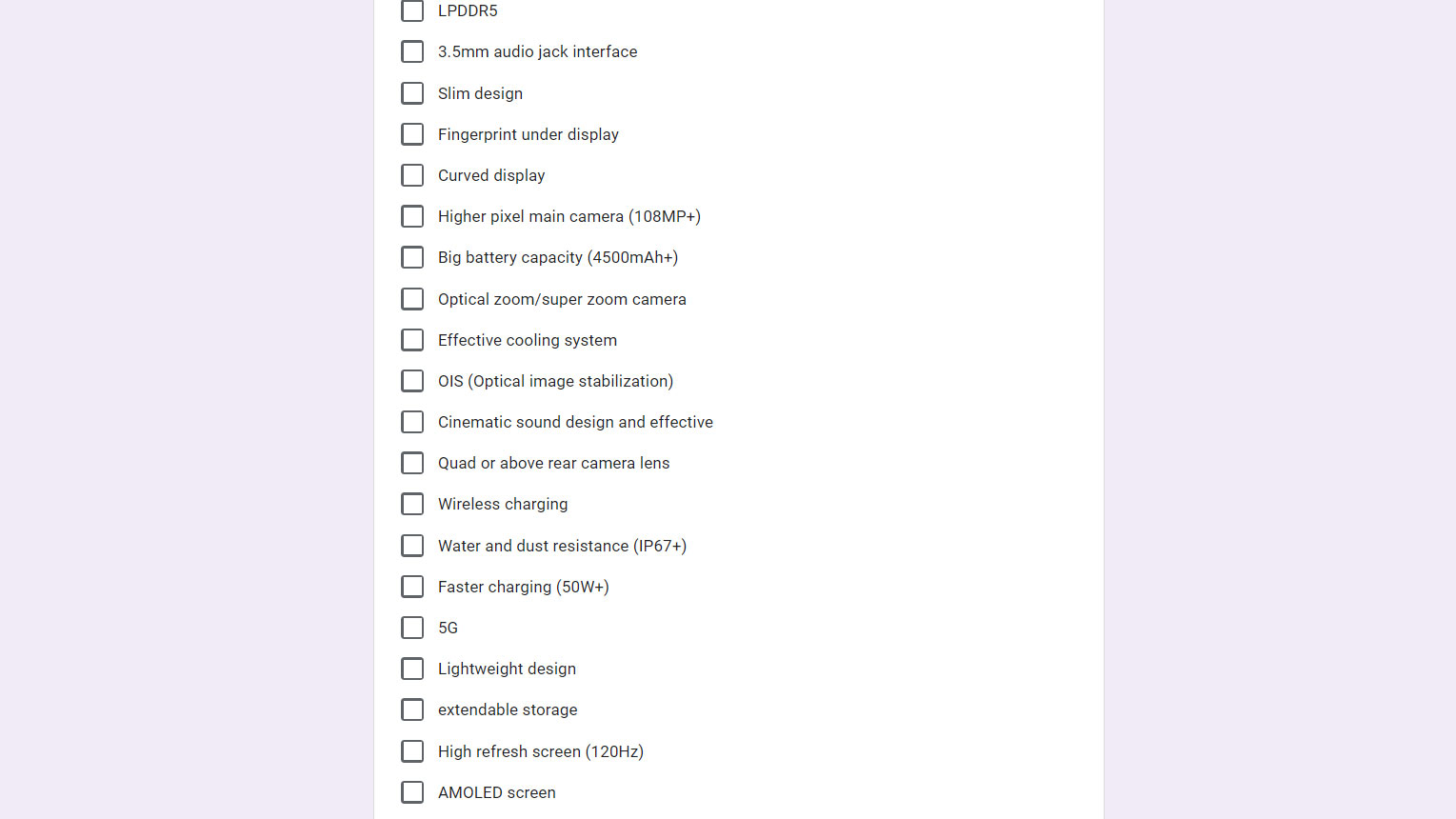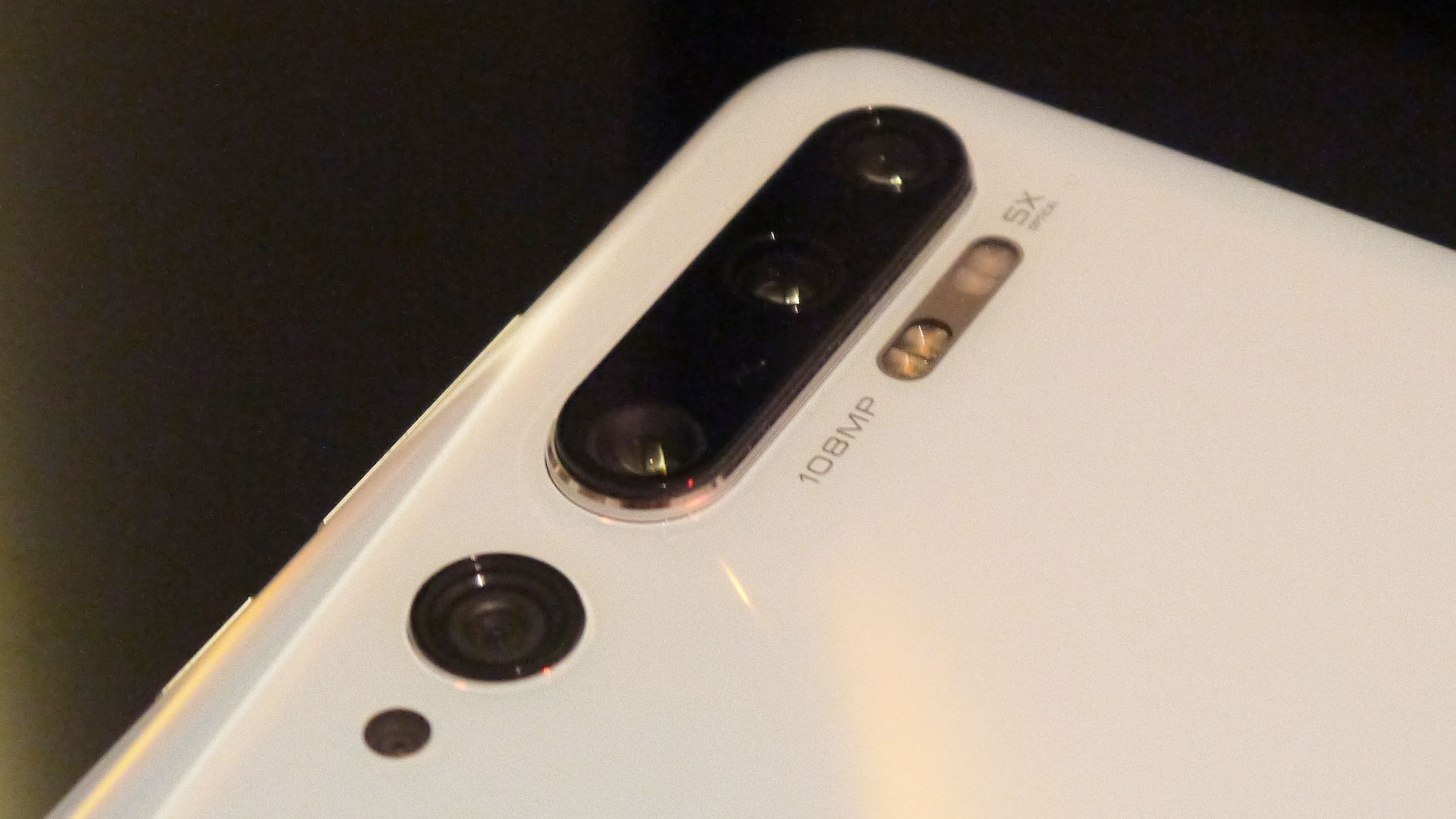Xiaomi Mi 12 or Mi 11T could lack this useful Android phone feature
No telephoto, but super-high-res sensors

Sign up for breaking news, reviews, opinion, top tech deals, and more.
You are now subscribed
Your newsletter sign-up was successful
Smartphone companies often base their product decisions on what buyers want, and Xiaomi is no different, but sometimes we can look at the questions brands are asking to see what direction their phones are going in. With that in mind, a new survey shows changes that might hit Xiaomi phones in the future.
This survey was sent out to some Xiaomi users via the phones' Mi Browser web app, as spotted by Reddit users of the r/Xiaomi subreddit. This survey asks lots of questions about what people look for in a new phone, including some pretty granular queries about preferred camera combinations and battery-size-and-charging-speed mixes.
Reading between the lines, we can draw some intriguing conclusions. It's worth pointing out that a survey is very, very far from confirmation of any changes in upcoming Xiaomi phones, but it gives us hints and teases at them.
- Check out our Xiaomi Mi 11 review
- The Xiaomi Black Shark 4 is on its way
- These are the best Xiaomi phones
Goodbye telephoto
The big news here, that we alluded to in the headline of this article, is that it looks like telephoto lenses might soon be a distant memory for Xiaomi. These lenses allow for optical zoom, but Xiaomi typically reserves them for its super-top-tier Pro smartphones, and it looks like even they might lose them soon.
One question in Xiaomi's survey asks which combination of rear cameras a potential buyer would consider in a Xiaomi phone - you can see the list below.

As you can see, while high-res main cameras and ultra-wide companions are out in full force, there's not a single mention of telephoto lenses (telemacro isn't the same thing).
In fact, through the whole survey there's only one option to confess a preference for zoom cameras, and it's in one of the initial questions where you're asked to tick off all the things you want to see in a smartphone.
Sign up for breaking news, reviews, opinion, top tech deals, and more.

To us, this suggests Xiaomi isn't preoccupied with adding telephoto lenses to its smartphones, and it's more interested in seeing if its buyers want 108MP or 64MP main cameras, or telemacro or standard-macro cameras.
Sticking with the high-res
If you went through that above list carefully, you'll see the entry 'Higher pixel main cameras (108MP+)'. Xiaomi is no stranger to 108MP main cameras, likely having more phones with the high-res sensor than all other brands put together, but it's actually the plus sign afterwards that's of interest to us.
That implies Xiaomi is considering going even higher than 108MP, something no smartphone currently does. Rumor has it that Samsung is working on 200MP, 250MP and even 600MP camera sensors though, and it seems Xiaomi may be eyeing them up.
Still, we wouldn't expect to see these super-sensors used in the immediate future, as it's unlikely modern chipsets would be able to handle them.
It doesn't seem like Xiaomi will drop below 64MP or 108MP for its main sensors though, as its questions only seem to offer those options for main cameras.

Anything else?
There are a few features Xiaomi asks questions about, that some or no Xiaomi phones currently use, and their presence in this survey implies the company is considering them for future phones.
These are extendable storage (with microSD card slots), wireless charging, internal cooling systems, 3.5mm headphone jacks, 120W fast charging, and rear camera arrays with more than four cameras.
Sure, the mention of them is far from confirmation that Xiaomi phones will soon get these features - it only suggests the company wants to know buyers' opinions of them. But that still could be because the company wants to know if including the features in its phones would be a good decision.
While we can't exactly use this survey to confirm future phone features - or even the loss of telephoto - it's a useful glimpse at what the company is considering.

Tom Bedford is a freelance contributor covering tech, entertainment and gaming. Beyond TechRadar, he has bylines on sites including GamesRadar, Digital Trends, WhattoWatch and BGR. From 2019 to 2022 he was on the TechRadar team as the staff writer and then deputy editor for the mobile team.